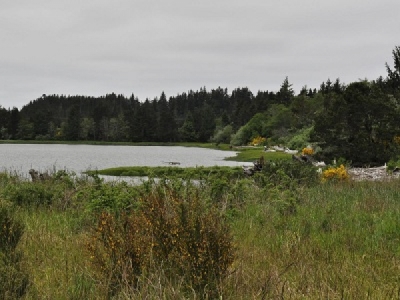
Posted on May 17, 2018
By Nicholas A. Johnson, The World
After reviewing a waterway sustainability assessment concerning the Jordan Cove LNG project, the U.S. Coast Guard found that the waterway in question is suitable in its current state for the sort of traffic the project would bring.
A committee of Coast Guard members and community experts reviewed assessments that were provided by Jordan Cove LNG. The assessment was then checked to make sure it met the standards that the Coast Guard has in effect.
“We looked at the waterway suitability assessment that the applicant provided, and we evaluated the assessment against the criteria in Navigation Vessel Inspection Circular 01-11,” Lt. Cmdr. Laura Springer said.
According to Springer, the process for this review was very similar to a previous application submitted by Jordan Cove LNG in 2009.
“We built upon the previous application and really tried to look at safety and security issues…The Coast Guard really is interested in promoting safety and security on the waterway and we used standard risk-based decision making,” Springer said.
Some of the specifics things the Coast Guard looks into during this review include channel depth, tidal conditions and the basic characteristics of the marine environment.
“Some of the known hazards in the area, such as earthquakes, we looked at. We took a holistic approach to really look at safety and security on that section of the waterway where the ship traffic will be transiting,” Springer said.
Jordan Cove LNG was happy to hear that the project vessel traffic had been recommended by the Coast Guard to the Federal Energy Regulatory Commission (FERC).
A statement was prepared by Michael Hinrichs with Jordan Cove to comment on the assessment.
“This is a testament to the thorough work our team has put into project design and operational planning. We remain focused on providing all necessary information to the federal, state and local agencies so they can move forward with the review of our permit applications,” Hinrichs said.
Although a step closer for Jordan Cove LNG, there is still much they must do before FERC makes a final decision on whether or not the facility will be able to open in Coos Bay.
“The applicant provided a suitable document. They were able to answer our questions, but the applicant still has a lot to do before they can bring an LNG carrier. The Coast Guard is not the permitting authority. This letter of recommendation is just one piece that FERC looks at when they make their determination if they will or will not permit a facility,” Springer said.
Opponents of the LNG project who think the project is a hazard to the community believe that the Coast Guard should not have given this recommendation because it does not take into consideration the dredging that would need to be done to accommodate tanker traffic.
President of Citizens against LNG, and Coos County Commissioner candidate Katy Eymann said, “The tankers are too deep. We currently have a bay that’s dredged 37 feet, and it would have go down to 42 feet.”
Eymann said that the increased dredging of the bay would bring the depth of the bay down to bedrock, and would also result in a widening of the bay itself.
“The deepening and widening of the bay would have a major impact on sand shrimp, oyster, and clamming. Those are major industries,” Eymann said.
Coos County Commissioner Bob Main commented that he is very happy with the work that the Coast Guard does, and therefore supports their recommendation to FERC.
“It met the Coast Guard criteria, and the Coast Guard knows what they’re doing,” Main said.
Source: The World





